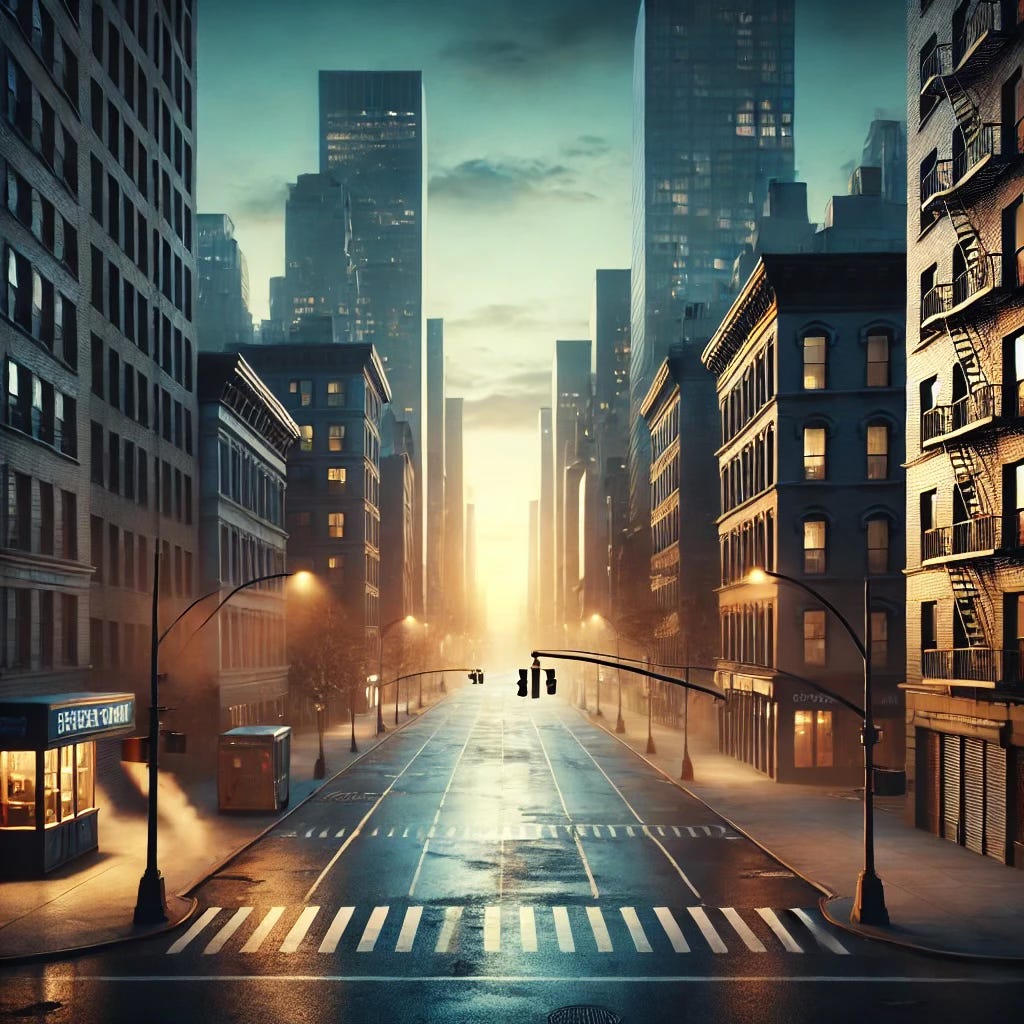Quiet AI Times
Will AI usher in a quieter era? An optimistic outlook.
Everything today disproves the case I’m about to make — but let me make it anyway.
With AI able to generate endless amounts of content, at any time, in any form, will creators and brands still have an edge?
Public figures, pundits, and celebrities have already lost their oligopoly on the circulation of ideas. The gatekeepers are gone. But is this actually for the best? The winners now are those who flood the online world with pain and pleasure, fear and indifference. Maybe the world has become too loud already. Maybe we need to turn our attention away from individuals competing for overlord status and focus on the communities that truly matter.
Algorithms have dragged us into a celebrity-reality-TV world on steroids, where parasocial relationships take precedence over deeper, more meaningful connections. And yet, Generative AI threatens to make things even louder. Every song remixed a thousand times, every story spawning infinite fan fiction, every game endlessly extended with AI-designed levels no human will ever reach. The noise is about to multiply.
But what if, amidst this deluge, we learn to use AI as a companion rather than a replacement? A tool to exhaust possibilities, refine ideas, spark inspiration — not drown out human ingenuity. Even so, feeds will become busier, personalized signals will proliferate, and thousands of micro-messages will compete for our attention — whether granted willingly or filtered through AI-driven curators tailored to our preferences.
At this turning point, I want to return to the founding post of Talking Too Many, through the words of Gilles Deleuze:
“We’re riddled with pointless talk, insane quantities of words and images. Stupidity’s never blind or mute. So it’s not a problem of getting people to express themselves but of providing little gaps of solitude and silence in which they might eventually find something to say. Repressive forces don’t stop people expressing themselves but rather force them to express themselves; what a relief to have nothing to say, the right to say nothing, because only then is there a chance of framing the rare, and even rarer, thing that might be worth saying.” — Gilles Deleuze, Negotiations
Words, Words, Words.
Virginia Woolf, in A Room of One’s Own, argued that true creativity requires solitude—space to think, to process, to refine - besides the abolishment of age old fetters and societal constraints, addressing the condition of women specifically. The flood of AI-generated content threatens this solitude, replacing depth with endless surface. The artist’s heart is divided between two forces: the need to communicate and the need to hide. “Publication is the Auction / Of the Mind of Man” wrote Emily Dickinson. In an age where AI amplifies the former, do we risk losing the latter?
Walter Benjamin, in The Work of Art in the Age of Mechanical Reproduction, warned that mass replication strips art of its aura—its uniqueness, its presence in time and space. If every artwork, song, and text can be generated infinitely, what happens to their aura? Will true value lie in what remains scarce, what resists duplication?
Even Shakespeare, centuries before the digital age, captured the paradox of excess in Hamlet:
“Words, words, words.”
A lament that rings even truer today.
Curate, Curate, Curate.
The printing press democratized knowledge, the camera democratized imagery, and now AI is democratizing creativity. Each technological leap has faced backlash—Socrates feared writing would erode memory; 19th-century painters dismissed photography as mechanical and soulless. Yet, history suggests that what endures is not the flood but the rare.
Consider the Renaissance: an era of artistic explosion, yet what remains celebrated are the selective works of da Vinci, Michelangelo, and Raphael—not the countless anonymous frescoes that covered Italy’s walls. Or the 20th-century avant-garde: Picasso and Duchamp broke artistic norms, but their work stood out precisely because it was scarce and distinct amidst a sea of tradition.
Perhaps, as AI accelerates creation, human curation and intentionality will become the new artistry.
Brands Must Mean.
In a world of infinite content, what will brands, creators, and companies do to stand out? The answer may lie in the business principle of scarcity and exclusivity. Luxury brands like Hermès thrive not because they produce more, but because they produce less—creating an aura of desirability. The same applies to art: a one-of-a-kind Banksy holds immense value, while mass-produced prints do not.
Seth Godin, in Purple Cow, argued that the key to marketing success is to be remarkable—to do what others aren’t doing. In a world where everyone is shouting, the boldest move may be to whisper.
Even Steve Jobs, who revolutionized digital consumption, understood the power of focus:
If AI drives infinite creation, will true distinction come from those who create with restraint?
The Future: A Return to Meaning?
Will those who embrace rarity, brevity, and scarcity stand out in this AI-saturated era? Will meaning begin to outweigh memes?
If everyone says everything, all the time, and every stimulus is hyper-personalized, will those who choose to say less—those who create sparingly, intentionally—be the ones who truly capture our attention?
In an age of abundance, perhaps silence will become the most valuable currency.



Really interesting points, Anthony. I hope quality will always get noticed, no matter how frequent. For example, Andy Borowitz and George Tannenbaum publish ever day, and are always worth a read.